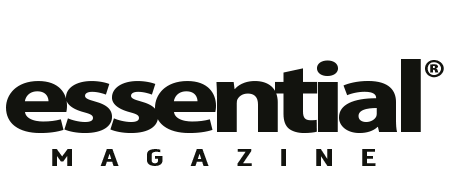Why is a health check important? Most of our medical resources have been allocated and focused on individuals with symptoms and illness. This plan of action is not optimal in preventing deadly disease. Figuratively, it could be compared to the treatment of individuals who have already fallen off a cliff with the ambulance and hospital situated at the bottom of the drop, instead of close-to-the edge actions to prevent the fall in the first place.
SHARE THIS ARTICLE ♥
The Silent Killers
Cardiovascular disease, such as stroke and heart attack, is the most common cause of mortality and morbidity worldwide with a new case every other second, and in many patients, the heart attack or stroke is the first symptom.
Cancer is also a significant determinant of world mortality, and cancers are 5-7 times more likely to kill you if detected late. Cardiovascular disease and cancer do not cause symptoms until at an advanced stage. An annual medical check with your doctor identifies individuals at risk with the objective of preventing the natural progression of the disease.
The following is a description of a basic and advanced annual exam in asymptomatic clients. Naturally, symptomatic or chronically sick clients, pregnant women, children or special risk patients need a different program, and an annual check can also vary depending on the country.
What does a Basic Medical Check Include?
A basic annual check includes a focus on the patient’s medical history where complaints or concerns about health are noted. The doctor will also ask about lifestyle behaviours like diet, smoking, excessive alcohol intake, sexual health, vaccination and exercise with the aim of modifying any behavior that is associated with an increased risk of disease.
Significant nutritional data has emerged in recent years which demonstrates how adapting to a wholefood plant-based diet might be the most important preventive health measure there is. The actual physical exam follows with the vital signs including blood pressure, which is a strong predictor of cardiovascular disease. Less than 130 over less than 85 is a normal blood pressure. A general appearance with anthropometric (physical risk) data, and heart exam with a stethoscope to detect an irregular heartbeat, a heart murmur, or other clues to heart disease are performed.
Next, a lung examination for crackles, wheezes, or decreased breath sounds is carried out, followed by a head and neck assessment with open mouth evaluation to see the throat and tonsils. The condition of teeth and gums also provides information about the overall health. Ears, nose, sinuses, eyes, lymph nodes, thyroid, and carotid arteries for stroke risk are also assessed. Abdominal, neurological and dermatological studies are then carried out; skin and nail findings could indicate a dermatological problem, but also disease somewhere else in the body. An extremities review where physical and sensory changes are noted is also undertaken.
For men, the annual physical exam might also incorporate a testicular, hernia and male organ exam, including prostate assessment. The female counterpart is a breast exam for abnormal lumps and evaluation of the lymph nodes in the underarm and finally a pelvic gynecological exam with a smear and human papillomavirus test to screen for cervical cancer.
The laboratory tests are most important in asymptomatic individuals and should include a general blood test evaluation of the function of all the various systems and nutritional data. Metabolic data for diabetes risk and lipid risk profiles for lifetime heart attack and stroke risk evaluation should also be integrated. Prostate specific protein for cancer in men and gynecology tumour markers might be included for women. Finally, urine tests for kidney disease and bladder cancer and a stool test for colon cancer are undertaken.
This annual assessment is relevant for all ethnicities, genders and in individuals above 20 years of age, but significantly indicated in clients above 30 years of age. In clients over 40 years of age the advanced annual checkup described below is recommended.
What is an Advanced Medical Check?
An advanced annual check adds imaging to prevent disease. In other words, it uses all available, most accurate and safe imaging methods such as advanced Magnetic Resonance (MR), Computed Tomography (CT), ultrasound, x-ray for mammography and in-body cameras or endoscopes to identify changes in the human body that have a high risk of developing towards mortality or morbidity, with the aim of preventing disease. Most deadly diseases have a latent asymptomatic period when they can be diagnosed with the aim of prevention.
A MR scanner can demonstrate small mm asymptomatic tumours or even precancerous changes on a molecular level. The MR can complete non-invasive angiographies of the brain or neck arteries to identify aneurisms (potential strokes). The ultrasound of the neck arteries can show early millimeter pre-stroke calcifications before they may progress towards death or disability, and the gastrointestinal tract capsule-camera can diagnose early colon polyps that represent precancer. The MR and mammography can indicate early cancer changes in the female breasts.
Finally, a unique type of CT scan can identify the future risk of heart attacks by demonstrating asymptomatic coronary artery calcification and plaques; it literally identifies the heart attack before it happens. All these scans can safely be carried out annually to detect disease early but the mammography might only be indicated every other year, and a negative CT heart scan would exclude the need for a re-scan for the next 5-10 years.
Corona Virus Risk
Around the world the coronavirus is directly causing increased mortality, but emerging data also demonstrates an increased mortality due to indirect corona effects, resulting from a lack of disease control, follow-up, or normal health checks. Please consider booking an annual check with your local doctor or Executive Health if you are above 40 years of age and imaging is required.
EXECUTIVE HEALTH
At the Helicopteros Sanitarios, Puerto Banús, Marbella. Tel: 603 840 984, 670 674 246.
www.executivehealth.es
WORDS DR. HENRIK REINHARD, MD, DMSc. PHOTOGRAPHY COURTESY OF EXECUTIVE HEALTH
